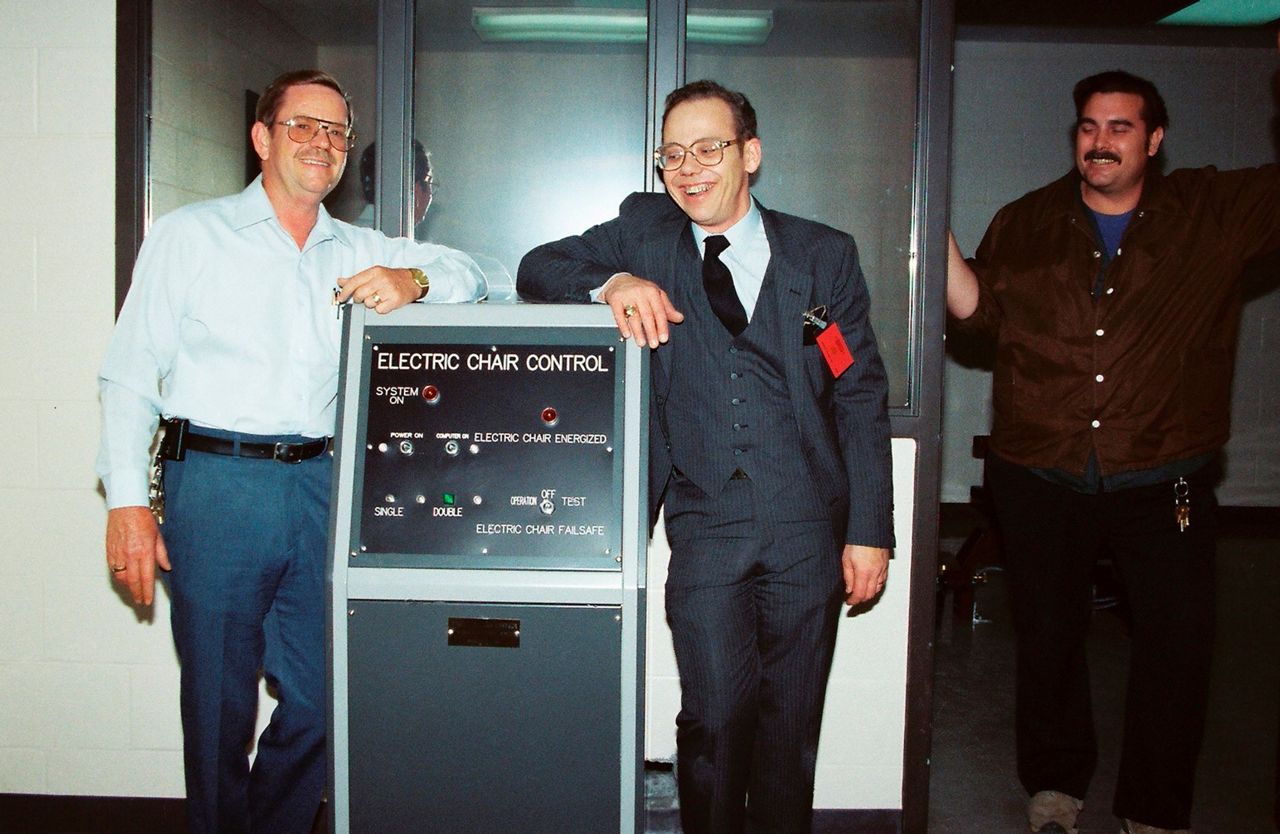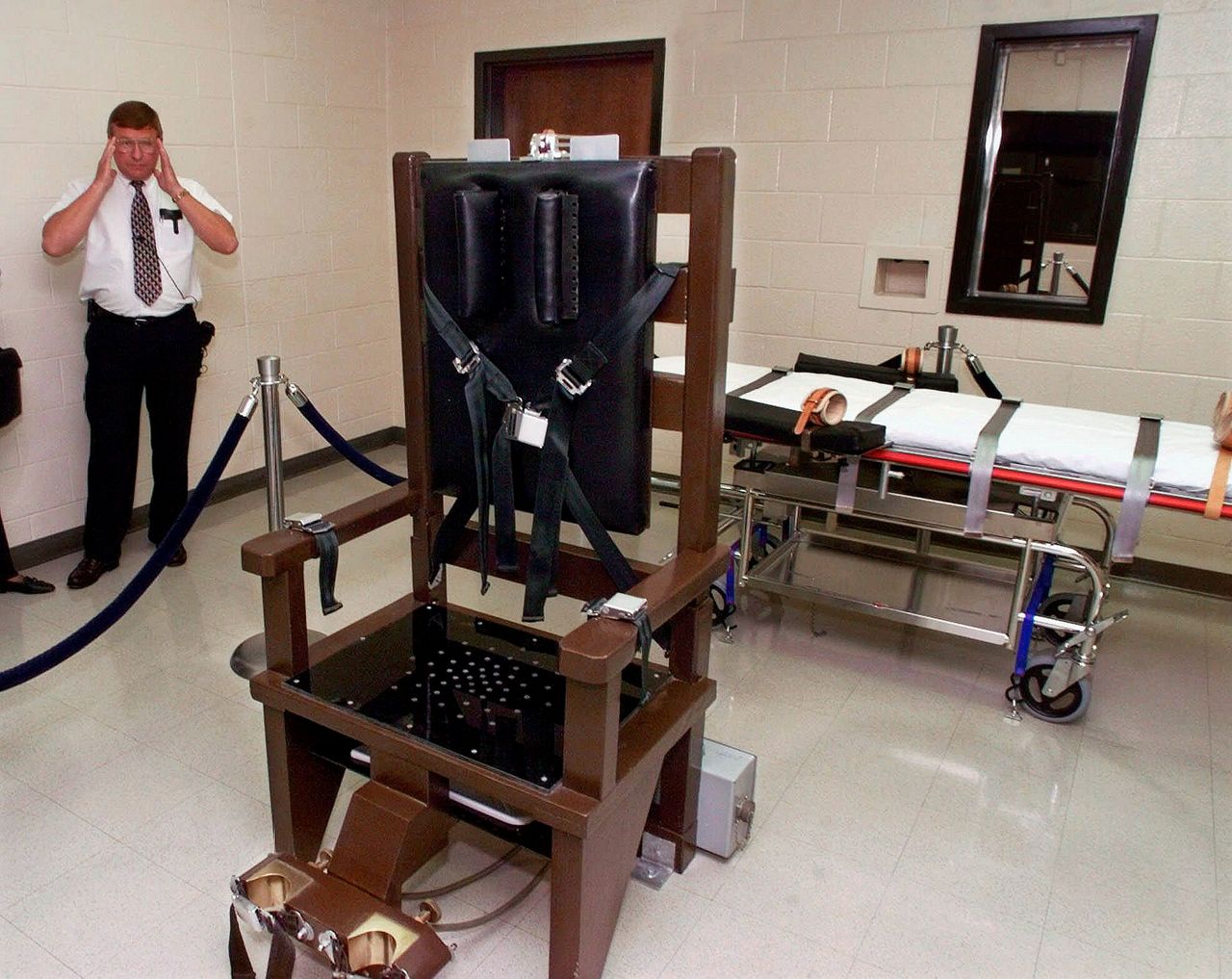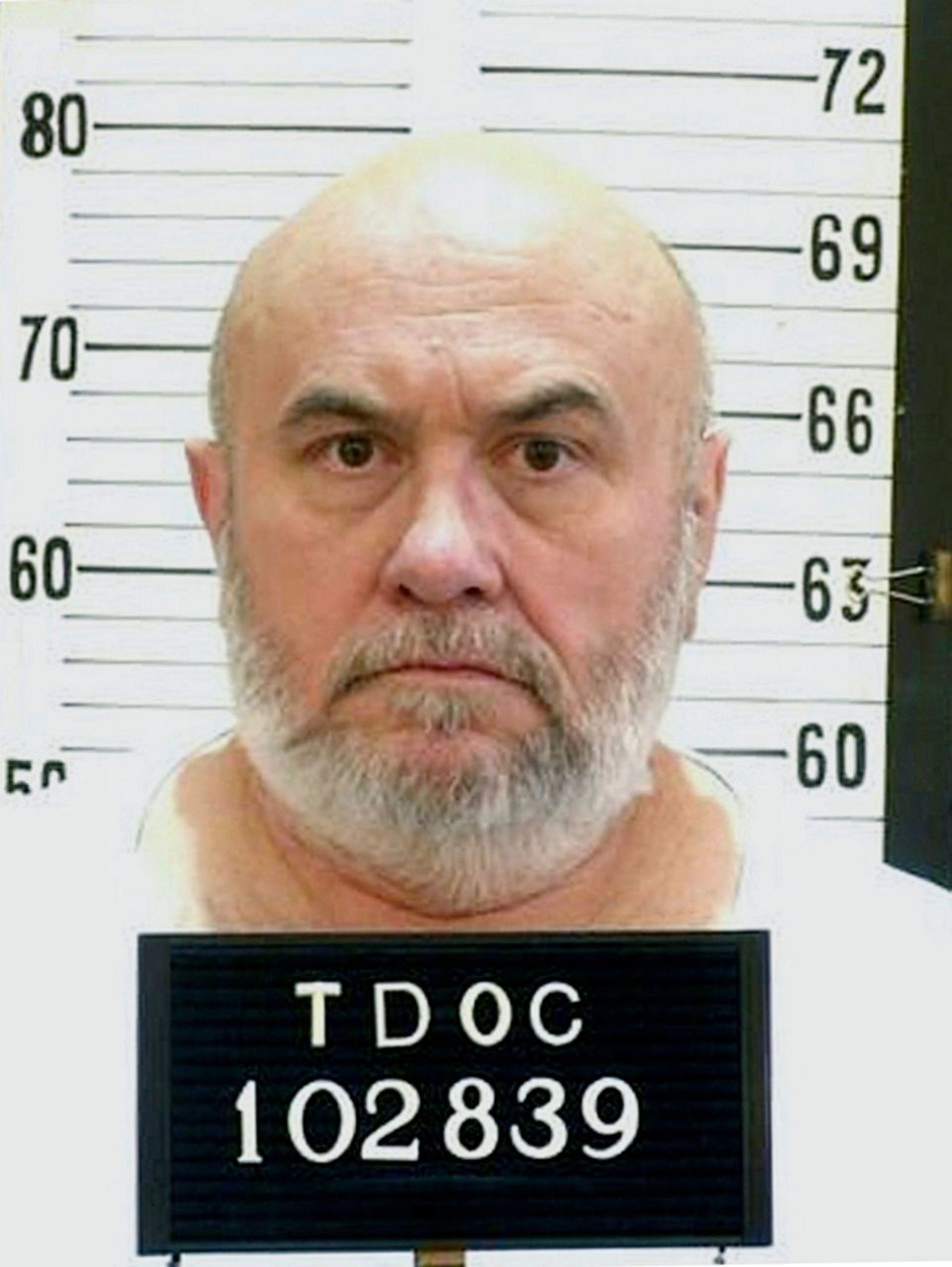NASHVILLE, Tenn. (AP) — If Tennessee electrocutes Edmund Zagorski on Thursday, it will be in an electric chair built by a self-taught execution expert who is no longer welcome in the prison system and who worries that his device will malfunction.
Fred Leuchter (LOOT'-cher) had a successful career in the execution business before his reputation was tainted by his claim that there were no gas chambers at Auschwitz.
Tennessee's chair, which hasn't been used since 2007, is just one of many execution devices Leuchter worked on between 1979 and 1990, according to an article by Fordham University professor Deborah Denno in the William and Mary Law Review. In addition to electric chairs, Leuchter built, refurbished and consulted on gas chambers, lethal injection machines and a gallows for at least 27 states.
After his comments about the Holocaust, it came to light that he had neither an engineering degree nor a license, even though he promoted himself as an engineer. His rise and fall was portrayed in a 2000 documentary.
Nonetheless, Leuchter stands behind the electric chair he rebuilt in 1988, relying on skills picked up designing navigational and surveillance equipment and a careful study of documents describing early executions. His concern is that Tennessee's chair will fail because of changes others made to it after he was no longer allowed to service it.
"What I'm worried about now is Tennessee's got an electric chair that's going to hurt someone or cause problems. And it's got my name on it," Leuchter said. "I don't think it's going to be humane."
Gov. Bill Haslam said he is confident the execution can be carried out without problems.
"I have a great deal of confidence in our Department of Correction folks. ... We've spoken with them regularly and they've assured us" the chair is ready.
Leuchter said he was familiar with prisons because he accompanied his father to his job as superintendent of transportation in the Massachusetts state prison in the 1940s and '50s, from about age 4 to age 16.
As a teenager, Leuchter helped his father move the state's old electric chair when the prison relocated, and he remembers they had to do it on a Sunday because the warden didn't want the news media to know.
"I helped put the chair in the truck. We covered it up with canvas," he said.
Years later, when it looked as though Massachusetts might restart capital punishment after a long hiatus, a prison steward who knew Leuchter's father asked Leuchter to come in and see whether the old chair was still usable.
From there, "my name was given to other states," Leuchter said.
He said many of their electric chairs were "decrepit, defunct, didn't work properly — if they ever had in the first place."
Denno, a law professor at Fordham who has studied execution methods for more than 25 years, said Leuchter filled a void. Often "the most qualified people don't want to be involved" in executions, she said.
Even after he was no longer welcome as a prison contractor, Denno said prison officials continued to contact Leuchter for help "because they literally had no one else to go to."
Tennessee asked Leuchter to refurbish its chair in 1988, when it was facing the possibility of its first execution in decades.
"It looked like it was made for a midget or something," Leuchter said.
So he built a new chair that incorporated wood from the original, which he was told was from the old gallows, and replaced the chair's electrodes. He also replaced the old leather straps that tether prisoners to the chair with quick-release nylon belts, to aid guards tasked with removing bodies after executions.
He trained prison workers and gave them certificates as "electrocution technicians."
Leuchter said he sold the original chair. A collector of "murderabilia" listed it on eBay in 2000. It now resides in the Alcatraz East Crime Museum in the Smoky Mountains.
Denno said electric chairs have "a history of botches that has only gotten worse."
In two Florida executions in the 1990s, smoke and flames shot from the condemned inmates' heads. In 1999, blood spilled from under an inmate's mask.
Shortly afterward, the U.S. Supreme Court agreed to decide whether the electric chair violates the 8th Amendment prohibition on cruel and unusual punishment. But the case was dropped after Florida switched to lethal injection.
Tennessee has executed only one person in Leuchter's electric chair. Daryl Holton died that way in 2007.
In preparation, an electrical engineer reduced the voltage from 2,640 to 1,750 and raised the amperage from 5 to 7. The timing was also changed, from two, one-minute jolts with a 10-second pause between, to a 20-second and 15-second jolt with a 15-second pause between.
The execution was successful.
The chair was inspected on Oct. 10 of this year and found to meet the criteria for an execution, state documents show.
But Leuchter said he feels the chair now is "defective and shouldn't be used."
"It worked the first time, but I think they were lucky," he said.
Copyright 2018 The Associated Press. All rights reserved. This material may not be published, broadcast, rewritten or redistributed.





